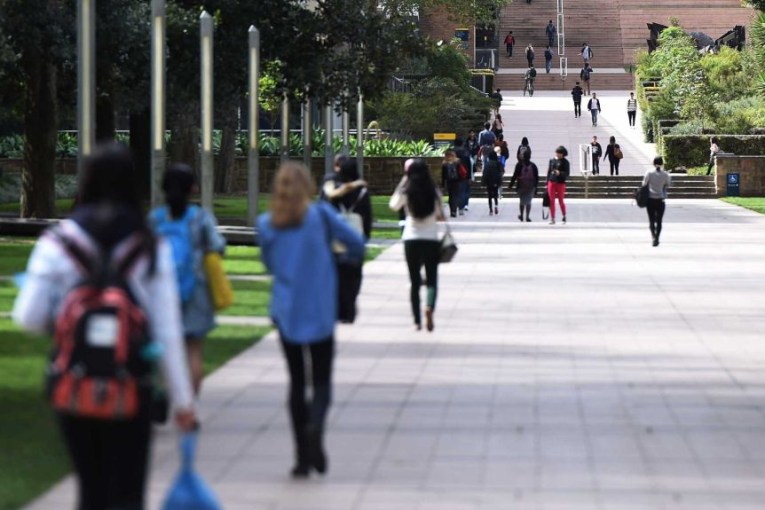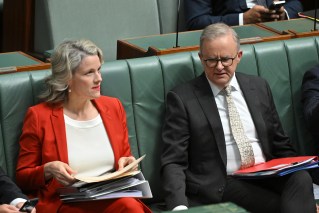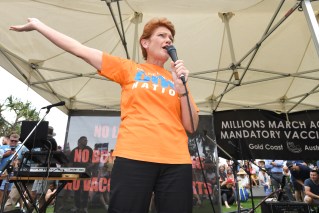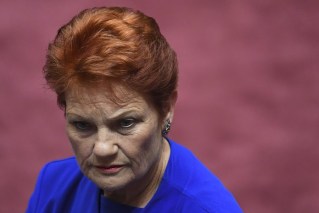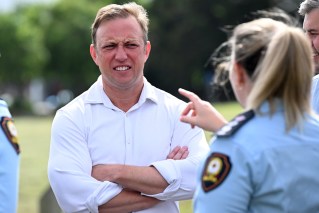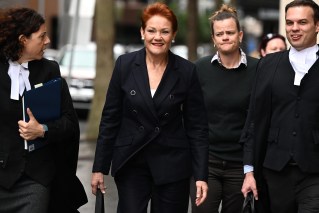The great shape-shifter of Australian politics rides into the sunset to start anew
Like everything else in Scott Morrison’s 16 years in the national parliament, his exit was about rewriting history and trying to reshape himself yet again. As he heads off for the lucrative ex-politicians speakers’ circuit in the United States, Dennis Atkins write his farewell report card.


In happier times: Former PM Scott Morrison pictured holidaying in Hawaii while Australia battled massive bushfires. (Image: supplied)
The great shape shifter of Australian politics had a send off that typified his career in public life.
Almost 30 years ago Morrison started what was a charmed life in public service – from the government-run tourism councils in Australia and New Zealand before running the New South Wales branch of the Liberal Party.
Morrison’s attachment to the Liberals was apparent from a very early age – he might say it was ordained by God while others would observe it was a path of ambition and convenience.
A controversial preselection for the solidly Liberal seat of Cook in Sydney’s outer southern suburbs was absorbed and his election led to six years in opposition followed by just over a decade in ministries and, for a while, the prime ministry.
Now he’s gone. After delivering a typically self-centred valedictory Morison sat out the week and left the building.
The most revealing – and for many shocking – passage in the speech referred to a general “ain’t life swell” attitude and a remarkable self-assessment.
“I leave this place appreciative and thankful, unburdened by offences, and released from any bitterness that can so often haunt post-political lives,” said Morrison. “This is due to my faith in Jesus Christ, which gave me the faith to both forgive but also be honest about my own failings and shortcomings.”
This generous self-referential view of himself sits at odds with many who’ve worked with him – witnessed in private behaviour and some post ministerial revelations, such as his extraordinary habit of assigning himself other people’s authority and delegated power.
Morrison built for himself a fearsome reputation while director of the New South Wales Liberal Party, demanding to get his own way and putting people in the deep freeze if they crossed him or obtained advancement without his blessing.
These traits carried on in Canberra and were amplified the further he climbed the greasy pole of power.
There has been a lot of discussion, conjecture and calculation about Morrison’s worth as prime minister. Where did he rank? Was he the country’s worst occupant of this high office?
The answers are usually framed by a tier of prime ministers in which academics and commentators place Morrison: he’s in a grouping which includes Tony Abbott, Billy McMahon and Billy Hughes.
Hughes is included because of his eccentric political career which spanned half a century – in his time he represented six different parties, was leader of five, four of which were disbanded before his exit. Hughes also had the unique distinction of being expelled from three different parties.
Hughes’s saving grace in terms of being lumped in with McMahon and Abbott was his leadership from 1915 to 1922 when he marshalled the country through World War One, established the CSIRO and formed the first national police force.
McMahon was a figure of fun (Stop laughing at Billy was one of the slogans Labor used in 1972) while Abbott was out of his depth, proving the trusty adage ex-journalists shouldn’t be allowed near anything that has powerful consequences (recently departed British PM Boris Johnson makes that an iron law).
However, neither Abbott nor McMahon caused real world damage to the nation.
It has been remarkable how few mentions there have been of the Morrison inspired welfare debt collecting bait and switch bureaucratic scam.
Known as robotdebt, this welfare by algorithm was judged by the Federal Court to be illegal and cost tax-payers at least $1.6 billion in a head-turning class action settlement.
Morrison was social security minister when the scheme was rolled out and he delighted in exposing welfare cheats in friendly tabloids and on eyeball-hungry evening commercial news.
It was called the worst public policy failure in Australia’s history and that’s just what it was. It sparked terror and fear among welfare recipients causing an unknown number to attempt suicide or be successful in their despair.
The bureaucrats involved were careless and consumed by a passionate need to serve the government and ministers of the day.
However, it was the ministers – starting with Morrison and passed on to Stuart Robert and Alan Tudge – who wilfully looked away or at least refused to ask obvious questions about the policy’s legality.
Royal Commissioner Catherine Holmes fingered Morrison as the generator of the phrase “welfare cops” in 2015, something used as a justification for sending out a plethora final demands for “welfare debt” payments.
Holmes said all evidence in the Social Security department recorded any welfare fraud as being minuscule and under control.
None of this caused the government to have a first doubt, let alone a second. They wanted front page stories showing the government to be tough on dole and welfare “bludgers” a favourite sport of conservatives since the late 1970s.
Morrison didn’t dwell on robotdebt in his speech where he boasted of being honest about his failings and short-comings.
This is the standout failing of Morrison’s time as prime minister (as his short stints in ministerial roles. It is impossible to go past the deaths of vulnerable Australians dependent on government assistance to get through the day – deaths caused by deliberate, intentional government policy and action.
There are plenty of other shortcomings and failings – his handling of the black summer bushfires of 2019/2020, the appalling way he treated women whether as colleagues, state premiers or in senior public sector roles and his “black is white” attitude to the truth.
During the 2020 coronavirus pandemic, Morrison told journalist Katharine Murphy, during an interview for a Quarterly Essay he managed the pressure because he had a “flow brain”.
It’s one of those psychobabble phrases people like Morrison use all the time – another of his favourites was describing policies which “washed their own face”.
Now Morrison places just about all of the weight for explanation, forgiveness and understanding on his self-described faith, a mix of pentecostalism, a take on the shouting and hand raising prosperity gospel and straight out material reward for proclaiming God.
Morrison’s blind adherence to his religious mix contained permission to enhance inequality, treat groups like asylum seekers harshly and bald-faced lying he practiced but never admitted.
For whatever reason Morrison used his faith to justify his design, application and the consequences of robodebt.
Morrison certainly hit heights when it came to weirdness but he was in strong company – Abbott and Kevin Rudd are two recent contenders in that lane.
However in the quest to name the straight out “worst ever” prime minister Morrison put daylight between himself and the next few.
